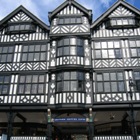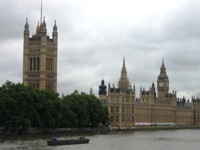Profile
- Research Subject
Methodological consideration of the historical formation of the welfare state, industrial revolution in global history, social history, and cultural history.
- Research Fields
- Western history
- Faculty - Division / Research Group / Laboratory
- Division of Humanities / Research Group of History / Laboratory of Occidental History
- Graduate School - Division / Department / Laboratory
- Division of Humanities / Department of History / Laboratory of Occidental History
- School - Course / Laboratory
- Division of Humanities and Human Sciences / Course of History and Anthropology / Laboratory of Occidental History
- Related Links
Lab.letters


Revisiting history from a new perspective
The merit of learning history is that one can see things from a new perspective. Analyzing evidences and mapping them into a larger picture is conducive to seeing a new phase of history.
My speciality is modern British history from the 18th to the 19th centuries. Britain in those days was the forerunner of modernization in the world. During the Industrial Revolution, the significant changes in social structure created the various kinds of voluntary associations. Considering these transitions not only from political and economic perspectives, but also from a cultural viewpoint is a current mode of historical research. Research on cultural history has just begun. The younger generation of historians is expected to explore a new frontier in this field.
Profound analytical ability and accumulated knowledge serve as your selling points.
The research topics that students chose from a wide range of historical subjects vary widely. Some students pursue the history of “masculinity” in America, and others work on Polish peasants history. This course provides an environment where students can participate in reading circle and free discussion group at their will, even if their research topics differ by country and period.
Learning history offers you more than in-depth expertise. It also empowers you to reflect things in an objective manner, categorize them in order and analyze them critically. These abilities are sure to be valued by any company or civil service, serving as remarkable selling points. I look forward to turning out graduates who apply these skills and play active roles in public.
Message
Historical science is a magnificent system of knowledge. Learning historical science requires profound insight. Therefore, I recommend that undergraduate students read not only history-related books intensively but also humanity/social-science-related books extensively. Linguistic capability is also necessary, especially for those majoring in the history of the Western world. More than anything, passion for research subjects is imperative. Is it true that people become best at what they love the most?
I invariably try to provide lectures and seminars within the faculty that will enable students to master the basic ideas necessary to extensively study historical science. Seminars I offer at the graduate school level are aimed at extracting points from polemical issues in modern historiography, thereby examining methodology and theories that can be applied to European or American history from the early modern through modern age.
Although it is no easy way to master academic sciences, our laboratory fortunately provides opportunities for you to enjoy your university life surrounded by many undergraduate and graduate students in a positive, easy-to-communicate atmosphere. I hope many of the applicants who read this article will knock on the door of our laboratory.




